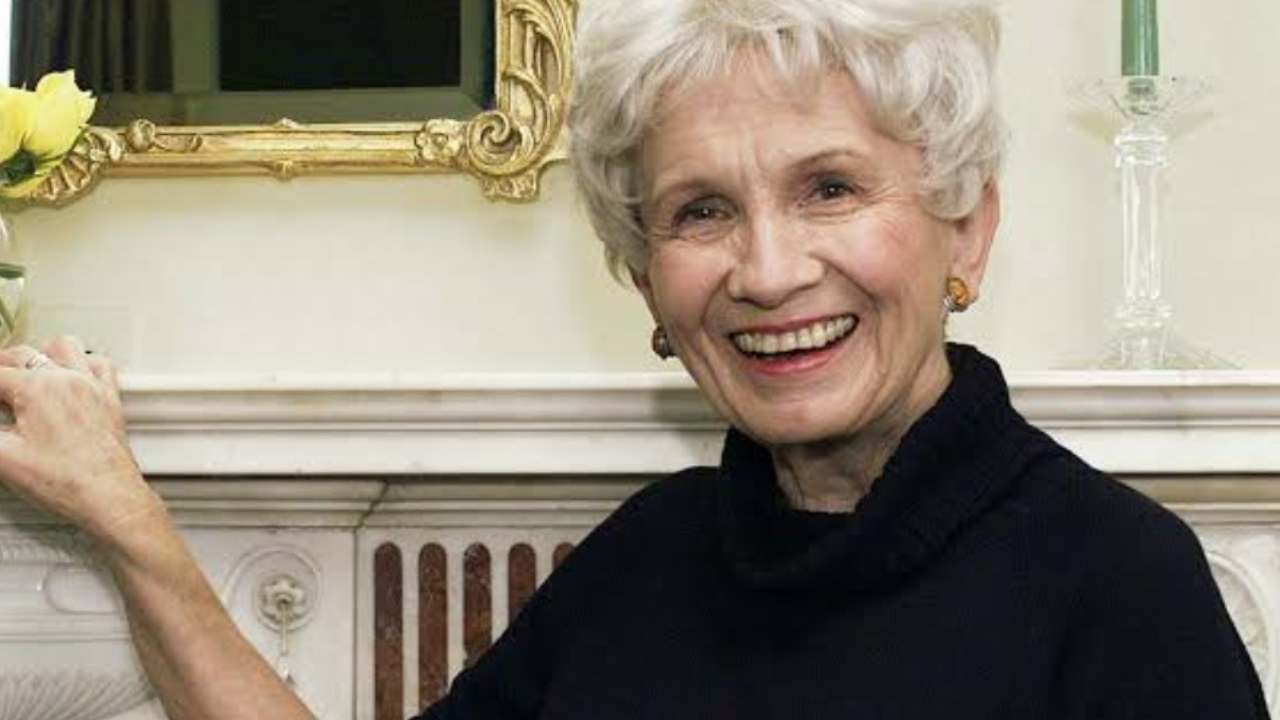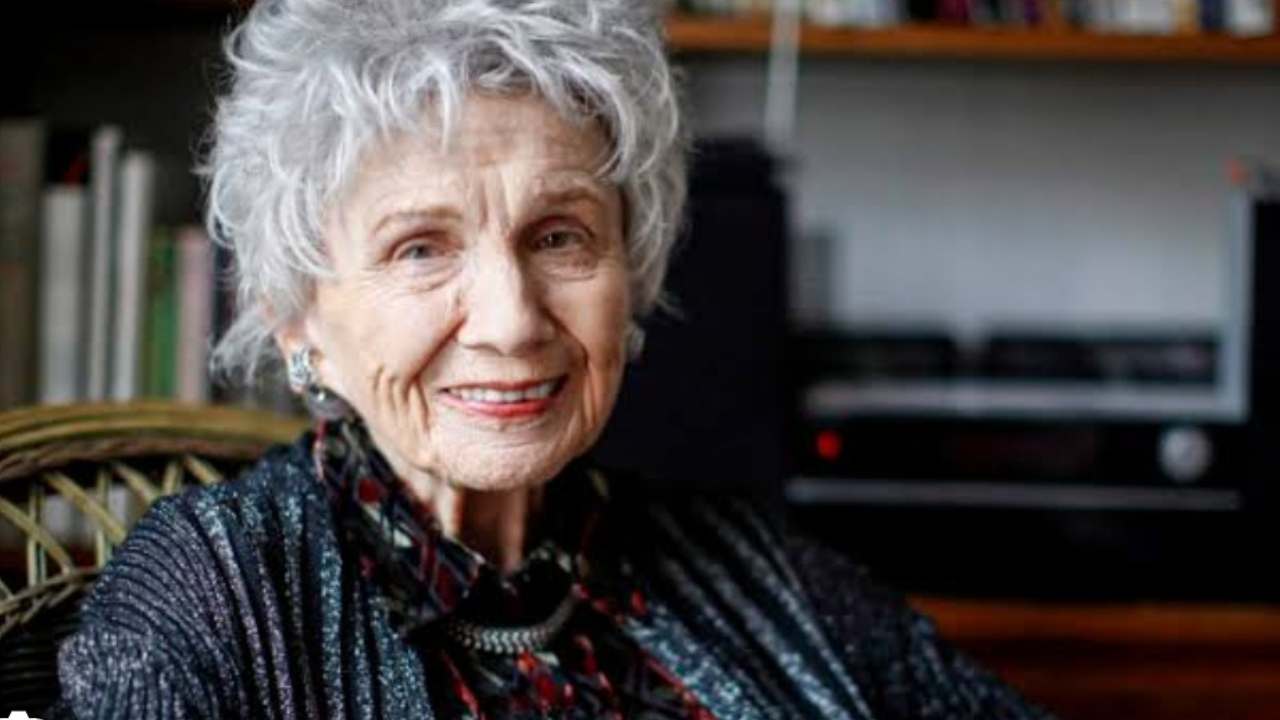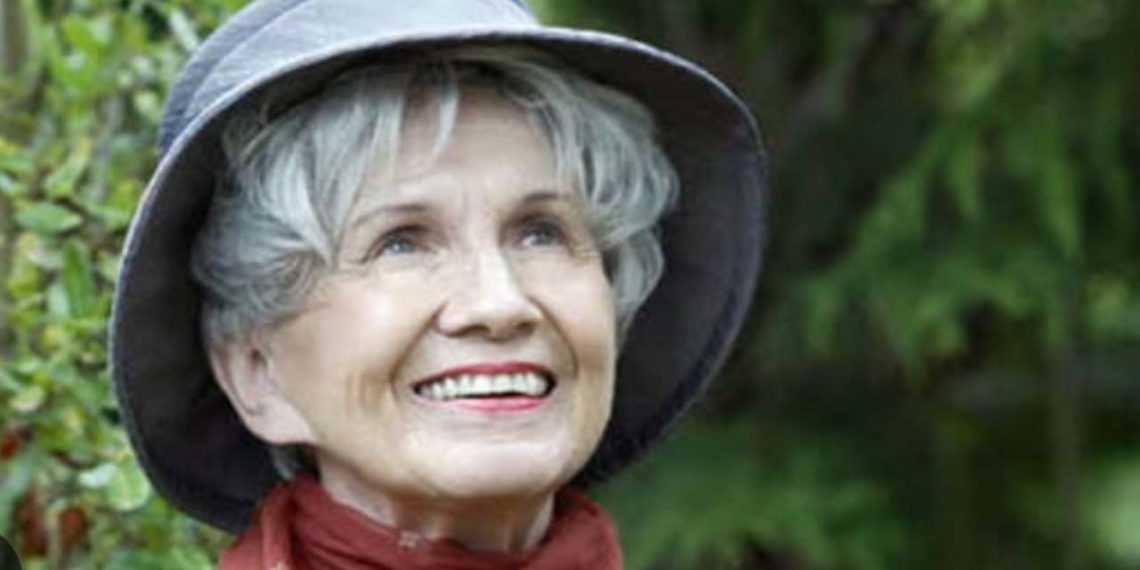Canadian author Alice Munro, recipient of the 2013 Nobel Prize in Literature, has passed away at the age of 92. For over six decades, Munro crafted short stories, frequently delving into the intricacies of rural Canadian life.
Her family and publisher have confirmed her passing at her residence in Port Hope, Ontario, on Monday night.
Munro’s narratives, marked by insight and compassion, earned her comparisons to Russian writer Anton Chekhov.

“Alice Munro is a national treasure – a writer of enormous depth, empathy, and humanity whose work is read, admired, and cherished by readers throughout Canada and around the world,” Kristin Cochrane, the CEO of Penguin Random House Canada, said in a statement.
In 1968, Alice Munro achieved her first major breakthrough with the short story collection “Dance of The Happy Shades,” earning Canada’s highest literary accolade, the Governor General’s Award.
This marked the beginning of a remarkable journey, as she went on to win this prestigious award three times in her lifetime.
Throughout her prolific career, Munro authored thirteen collections of stories, along with the novel “Lives of Girls and Women” and two volumes of Selected Stories.
Her relationship with the New Yorker magazine blossomed in 1977 when they published “Royal Beatings,” a story inspired by her own childhood experiences of discipline from her father. This marked the start of a longstanding partnership with the publication.
More About Alice Munro
Born in 1931 in Wingham, Ontario, to a fox farmer and a schoolteacher, Munro drew inspiration from her upbringing in her storytelling. Many of her narratives are rooted in the landscapes and communities of her hometown, offering vivid portrayals of the region’s people, culture, and way of life.
Despite humble beginnings, Munro excelled academically, earning the title of class valedictorian at her high school and securing a scholarship to the University of Western Ontario in London.

Her passion for writing emerged alongside her academic pursuits, with Munro dedicating equal amounts of time to both endeavors.
Her literary journey began in the 1950s and 1960s, with her stories being broadcast on the CBC and published in various Canadian periodicals.
Munro’s narratives often juxtaposed life before and after the societal shifts of the 1960s, providing poignant reflections on the evolving dynamics of Canadian society.
“Having been born in 1931, I was a little old, but not too old, and women like me after a couple of years were wearing miniskirts and prancing around,” she said.
In 2012, Alice Munro’s final collection of stories, “Dear Life,” was published, featuring a series of partly-autobiographical narratives.
Munro expressed the significance of “Dear Life,” acknowledging it as a unique compilation, possibly marking the end of her writing career.
“Not that I didn’t love writing, but I think you do get to a stage where you sort of think about your life in a different way,” she said.





